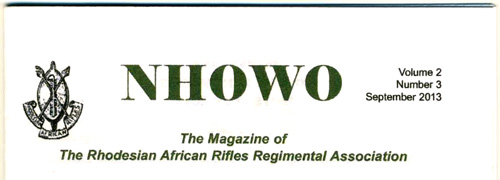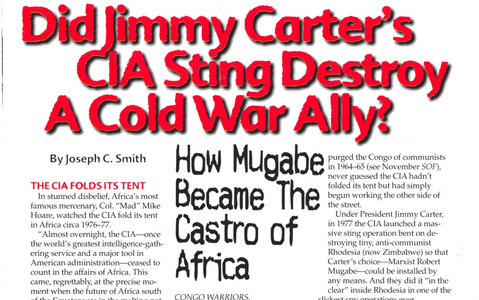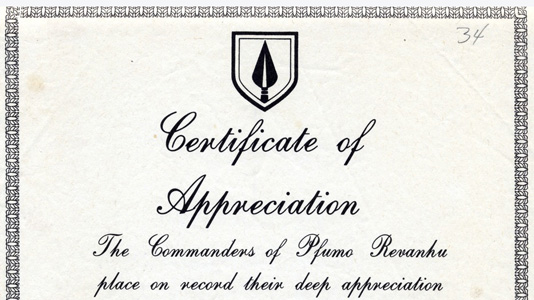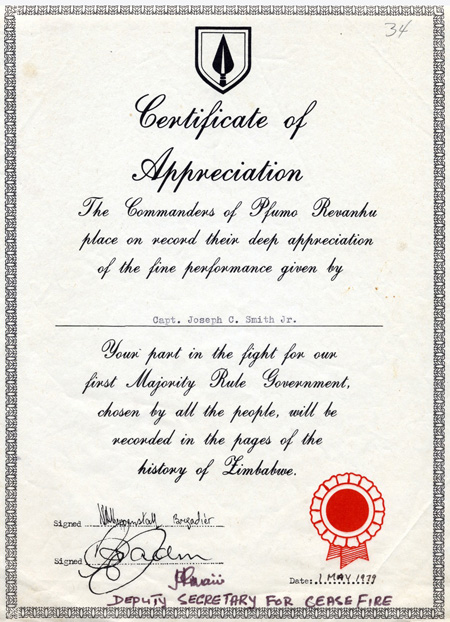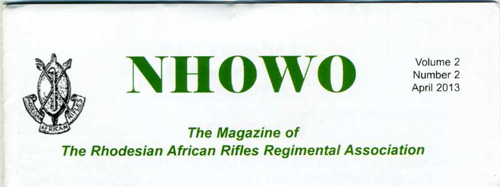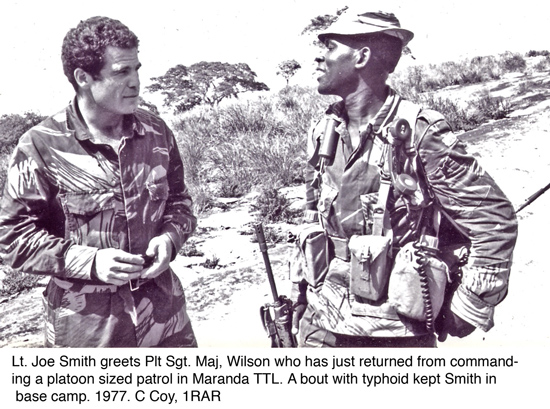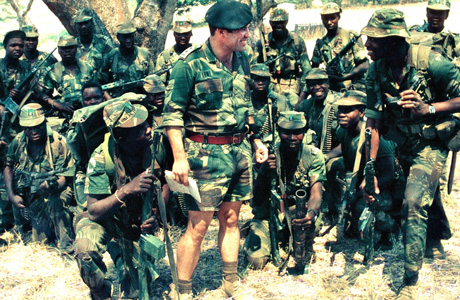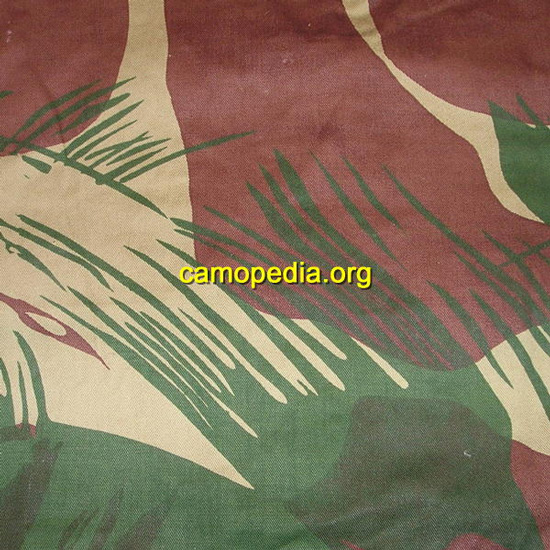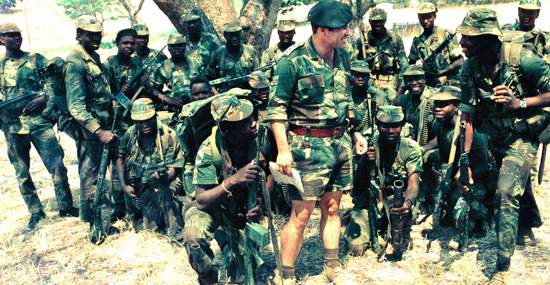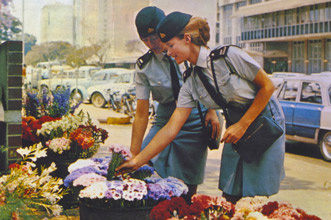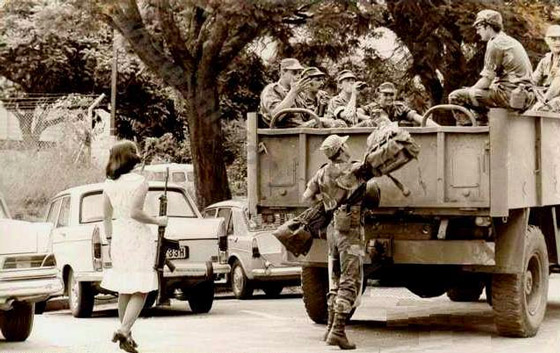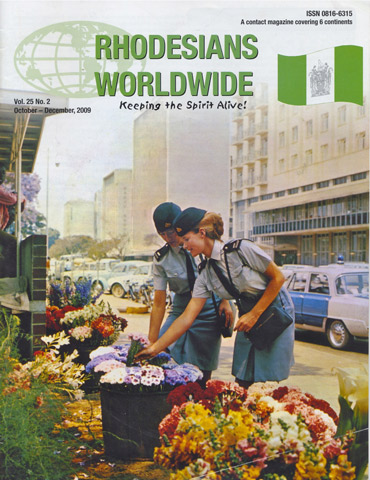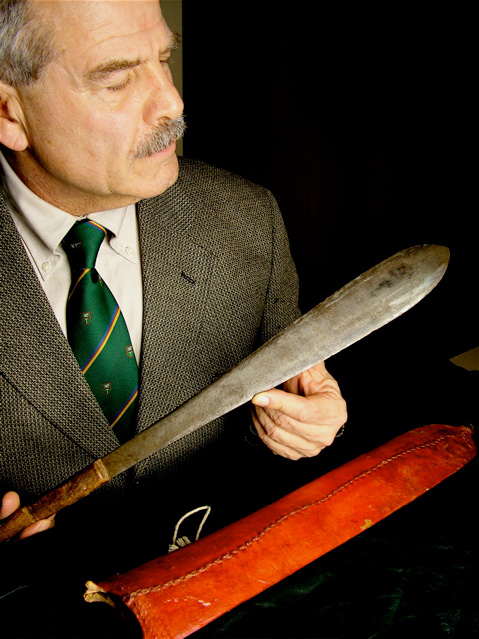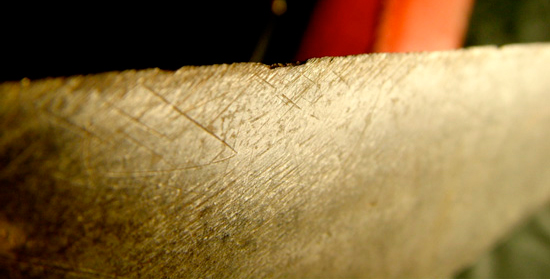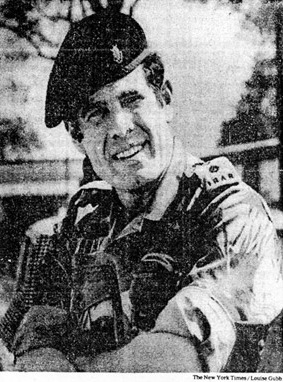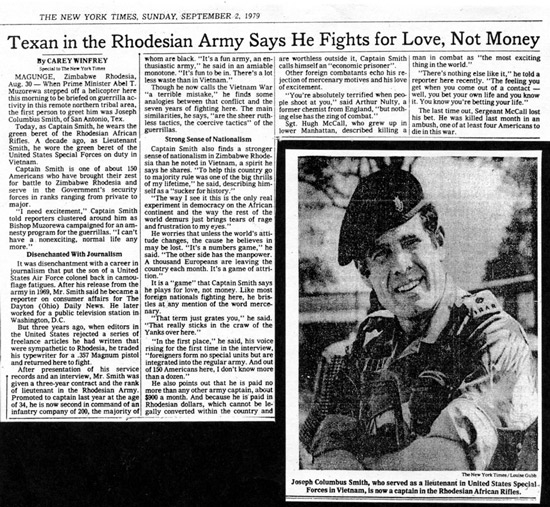Written by COLUMBUS SMITH, Oregon
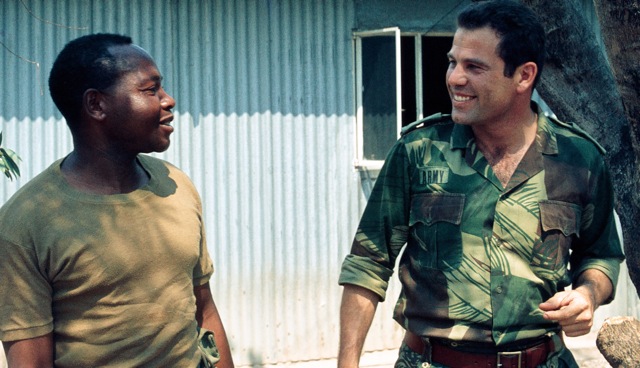
Just before dawn Company Sergeant Major J. Chitereka (DMM) burst into my tent and said:
“Sir, the three trackers are missing!” I was horrified. Our full company of 153 soldiers had arrived the afternoon before and we set up our base-camp on a farmer’s property in Karoi. As Second in Command (21C) of B Company, I RAR, I was thrilled when my Commander Maj. Charley B.Piers (called to a Commanders conference in Salisbury) had entrusted me with deploying his company. But a day into that deployment, before a single patrol was launched, I had already lost three of his troops. (The year was 1978 during a Cold War chapter called The Rhodesian Bush War. Our mission was to search out and destroy communist terrorists (CTs) in an adjacent Tribal Trust Land.)
CSM Chitereka led me through the breaking dawn to the small empty tent where my three trackers normally slept. The tent backed up to a freshly ploughed field.
Exiting the back side of the tent were three sets of outbound tracks, making deep impressions in freshly—ploughed ground.
Dawn exposed the obvious target of my trackers’ ‘patrol.’ It was a small mud “Kia” about 100 meters away—on a beeline with the outgoing tracks. Instantly I recalled a very brief scene from the previous afternoon when our convoy rolled right past this Kia, just before turning into what would soon be our basecamp.
I remembered our well-turned out soldiers, some in starched Rhodesian camouflage, standing up in the backs of our troop trucks when three attractive young African women stepped out of this Kia for a better look at the men of B Company. One of the three women flashed a welcoming hand wave.
The sun was now quickly burning away any mystery about their disappearance when the three trackers began sneaking out of the hut, unaware they were being observed.
Obviously they thought they could backtrack back to camp undetected.
Instantly the bullhorn voice of his CSM Chitereka was bellowing orders across the field and our three AWOL trackers were sprinting toward us to meet their fate.
Within the hour CSM Chitereka had marched all three men to my tent “on orders” for deserting camp.
To the first tracker I asked: “Did you leave basecamp last night and poke the nannies?” “Yes, Ishe,” was his two word response.
The second tracker answered identically but not quite loud enough for CSM Chitereka who gave him a quick poke in the ribs with his pace stick. By now the soldier was standing so rigidly arched at attention he seemed to be staring at the top of my tent.
“Yes, Ishe”, he repeated ten decibels louder. But the last and final tracker marched in front of my desk seemed oddly composed. Almost righteous.
“Did you poke the nannies too!” I demanded.
“No Ishe”, he shouted back with a hint of soldierly pride.” I stood guard!”
It was hard to tell who was trying harder NOT to laugh, CSM Chitereka or myself. Somehow we maintained proper military decorum.
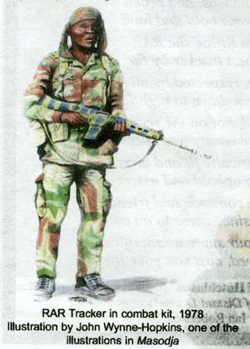
For punishment I ordered all three trackers to get fully kitted up -with steel helmets and full packs. Company Sergeant Major Chitereka handed them over to the tender mercies of a new Corporal. All day our midnight trackers were ‘double-timed’ over every metre of the basecamp providing great theatre for nearly all.
Our mission, I’m happy to report, was in no way interrupted and by dusk we had a number of squad-sized units deployed along the periphery of the Tribal Trust Land. The squad leaders waited silently as the eyes of their soldiers adjusted to the fading light
…before launching their patrols.)
But make no error, every step of the way this imported officer was getting valuable assistance on Rhodesian Army Military Law from a supremely proficient CSM Chitereka and it was by no means the first or last time he was of great assistance.
About a year later, just after Zimbabwe/Rhodesia’s first majority rule election, March 1979, about a hundred young African males dressed in civilian clothes suddenly appeared on post unannounced.
We learned later that these raw recruits were the beginning of the embryonic Pfumo Revanhu. CSM Chitereka and myself were ordered to begin training them immediately without being given even a hint of what their mission might be. Oh, and no, these raw recruits didn’t arrive with a training syllabus to prepare them for their undisclosed mission.
Undaunted, I grabbed two pencils, a handful of paper, and rendezvoused with CSM Chitereka at a picnic table and in three hours we had created a training syllabus with a balanced mix of drill, physical fitness, marksmanship and motivational training. His contribution to that unique training schedule was immense.
Had I but one wish it would be to sit down with CSM Chitereka over a beer and laugh about our three trackers who went AWOL to poke the nannies”…and drink a toast to the one who stood guard”.
—from NHOWO September 2013

